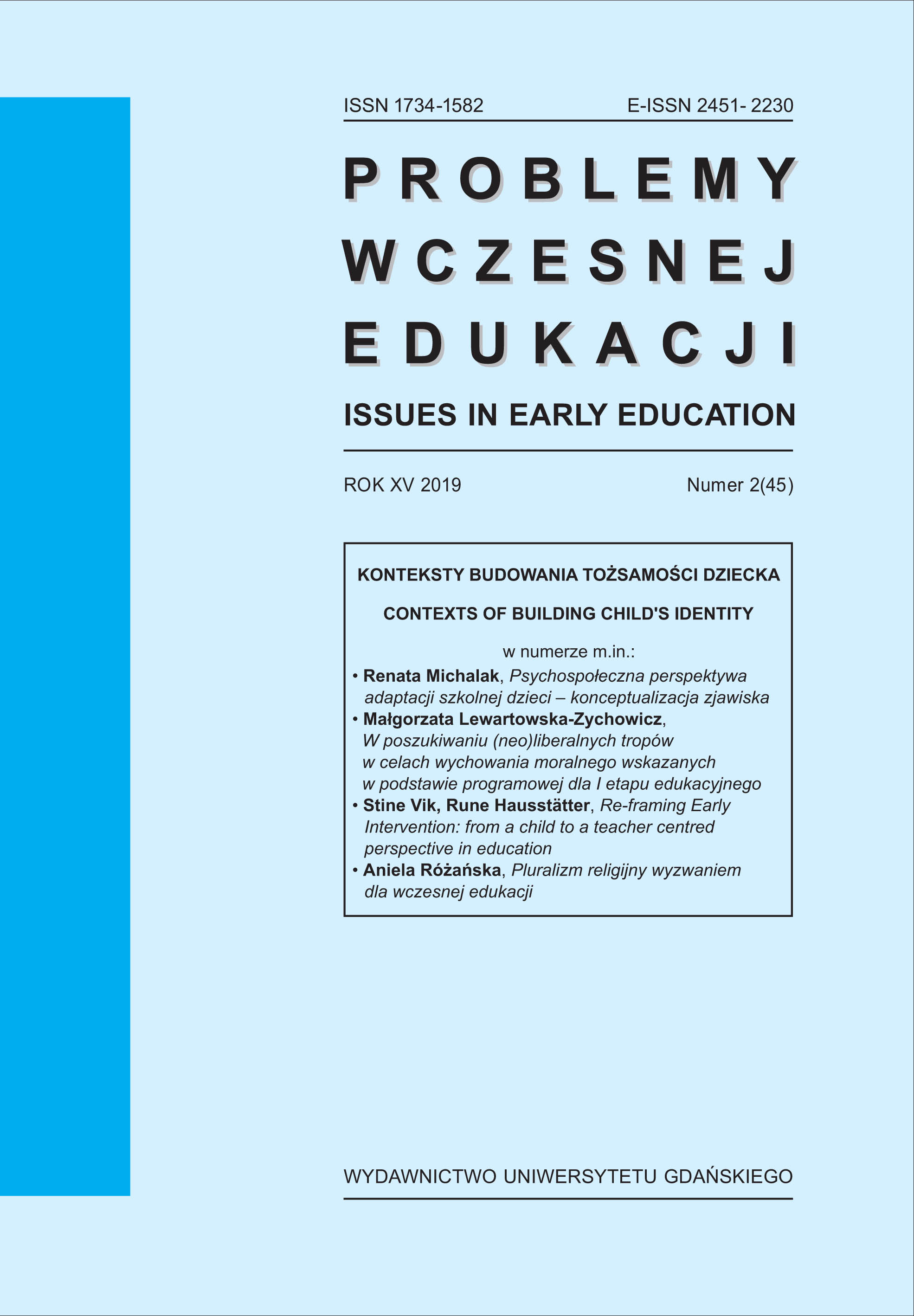Primary school students’ argumentation skills: expression of arguments
DOI:
https://doi.org/10.26881/pwe.2019.45.09Słowa kluczowe:
umiejętność argumentowania, edukacja podstawowa, rozwój językaAbstrakt
This study was conducted to analyze the fourth grade students’ linguistic abilities allowing them to express their arguments in oral and written texts: to determine both the number of presented arguments as well as the level of their elaboration, to characterize the expression of the arguments. The recorded number of participants was 117 fourth-graders from 15 Lithuanian schools. Oral and written texts created by the students were explored in the study. The obtained results revealed that the fourth grade students were able to voice their opinion on at least one argument when they cre-ated an oral or written text on a familiar topic and context. Approximately one-quarter of the study participants were able to present more than three arguments. No significant differences were found between oral and written argumentations with regard to quantity of the arguments. A qualitative analysis of the spoken and written texts indicates that the fourth grade students can use generalized statements (unelaborated secondary statements), they rely on examples and sources. It has also been observed that the study participants’ abilities to develop arguments differ considerably. Their very diverse, even contrasting abilities demonstrate the necessity for developing/updating the curriculum content that would focus more on argumentation.
Downloads
Bibliografia
Bitinas B. (2006), Edukologinis tyrimas: sistema ir procesas. Vilnius, Kronta.
Chen Y.-C., Hand B., Park S. (2016), Examining Elementary Students’ Development of Oral and Written Argumentation Practices Through Argument-Based Inquiry. “Science and Education”, 25.
Christodoulou A., Osborne J. (2014), The Science Classroom as a Site of Epistemic Talk: A Case Study of a Teacher’s Attempts to Teach Science Based on Argument. “Journal of Research in Science Teaching”, 51(10).
Deane P., Song Y. (2015), The Key Practice, Discuss and Debate Ideas: Conceptual Framework, Literature Review, and Provisional Learning Progressions for Argumentation. Research Report ETS RR–15-33. https://files.eric.ed.gov/fulltext/EJ1109288.pdf, 21.09.2018.
Kuhn C.,Crowell A. (2011), Argumentation as a Path to the Thinking Development of Young Adolescents. Society for Research on Educational Effectiveness (SREE Reports. https://eric.ed.gov/?id=ED519122, 21.09.2018.
Kuhn D. (2009), Do students need to be taught how to reason? “Educational Research Review”, 4.
Kuhn D., Dean J. (2004), Metacognition: A Bridge Between Cognitive Psychology and Educational Practice. “Theory Into Practice”,43(4).
Lin S.-S. (2014), Science and non-science undergraduate students’ critical thinking and argumentation performance in reading a science news report. “International Journal of Science and Mathematics Education”, 12.
Ramonienė M., Brazauskienė J., Burneikaitė N., Daugmaudytė J., Kontutytė E., Pribušauskaitė J. (2012), Lingvodidaktikos terminų žodynas. Vilnius, Vilniaus Universiteteo Leidykla.
Song Y., Deane P., Fowles M. (2017), Examining Students’ Ability to Critique Arguments and Exploring the Implications for Assessment and Instruction. Research Report ETS RR–17-16. https://files.eric.ed.gov/fulltext/EJ1168598.pdf. 21.09.2018.
Van der Graaf J., Segers E., Verhoeven L. (2015), Scientific reasoning abilities in kindergarten: dynamic assessment of the control of variables strategy, “Instructional Science”, 43.

 Uniwersyteckie Czasopisma Naukowe
Uniwersyteckie Czasopisma Naukowe





